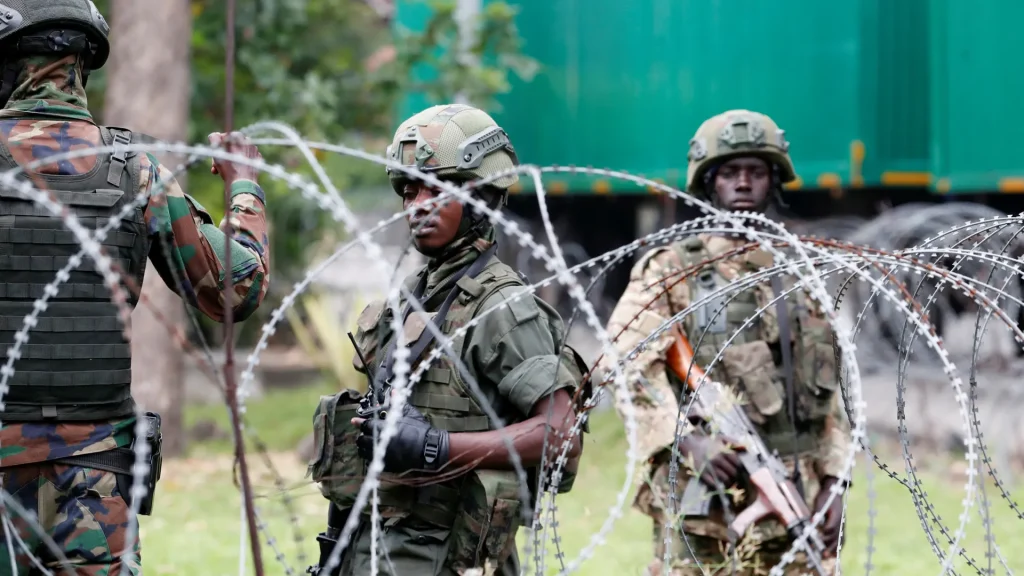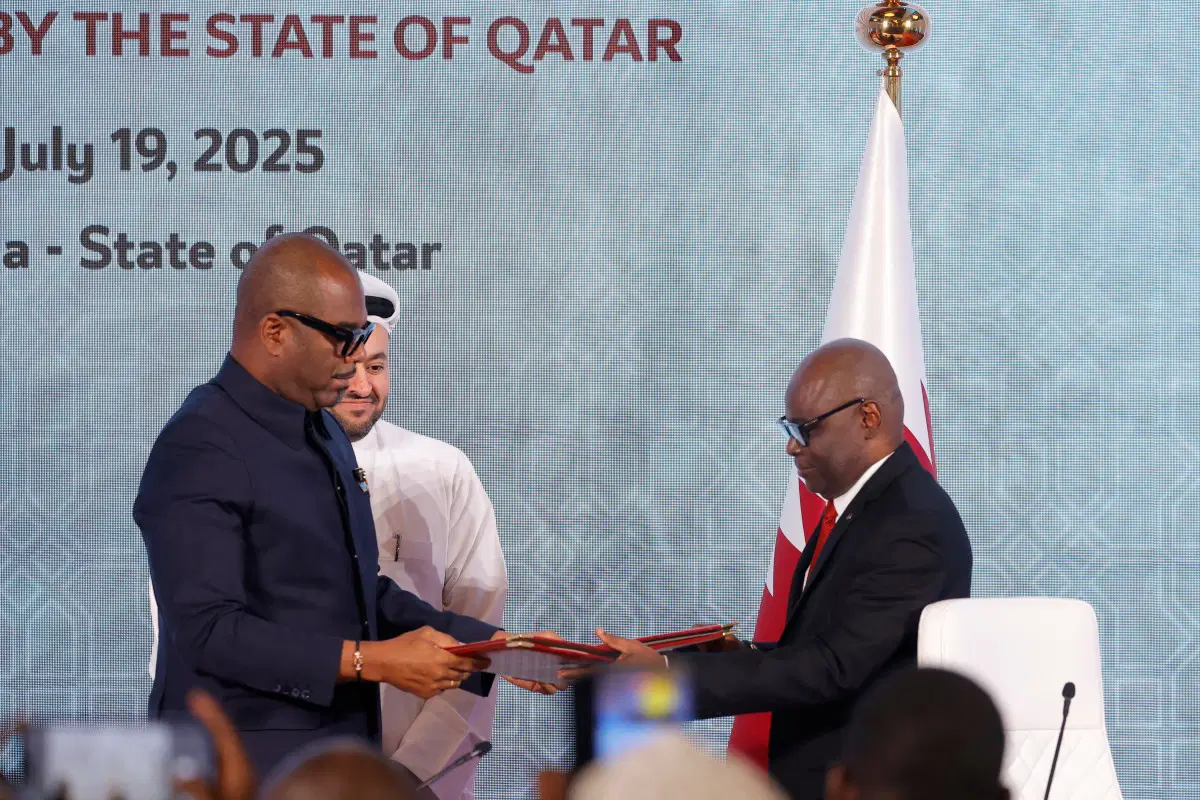The Democratic Republic of Congo (DRC) is getting closer to the end of its prolonged conflict, the country’s interior minister has said, following a newly signed ceasefire agreement with the M23 rebel group, which is reportedly supported by Rwanda.
The M23 insurgency, which launched a fierce campaign earlier this year, captured significant areas in the DRC’s east during rapid offensives in January and February, including the strategically important cities of Goma and Bukavu. The fighting left thousands dead and displaced many more.
After three months of mediation in Qatar, both parties signed a “declaration of principles” on Saturday in Doha, which includes a commitment to a “permanent ceasefire”
“Peace is a matter of choice,” Interior Minister Jacquemain Shabani said during a press briefing alongside Communications Minister Patrick Muyaya on Monday evening. “I firmly believe we are on the brink of peace,” he added, stressing the importance of national unity and the need for compromises to move forward after decades of unrest.
The Doha declaration outlines a roadmap to restore government authority in the conflict-hit eastern provinces and paves the way for direct negotiations between the Congolese government and M23 aimed at securing a broader peace agreement.
“We seek lasting and definitive peace,” Muyaya told reporters, underlining the government’s commitment to ending the violence.

However, past ceasefires in eastern Congo have often unravelled, raising concerns about the durability of this latest truce.
While Rwanda has repeatedly denied involvement in the M23 rebellion, United Nations investigators have concluded that the Rwandan military played a significant role in the group’s combat operations during their most recent campaign.
Though active fighting has largely subsided since February, sporadic clashes have continued between M23 fighters and various local militias aligned with the Congolese government.
Eastern DRC, a region rich in mineral wealth, has suffered over three decades of armed conflict, fuelling one of the world’s most persistent humanitarian crises and forcing hundreds of thousands to flee their homes.
The Democratic Republic of Congo (DRC) is nearing the end of its prolonged conflict, the country’s interior minister has said, following a newly signed ceasefire agreement with the M23 rebel group, which is reportedly supported by Rwanda.
The M23 insurgency, which launched a fierce campaign earlier this year, captured significant areas in the DRC’s east during rapid offensives in January and February, including the strategically important cities of Goma and Bukavu. The fighting left thousands dead and displaced many more.
After three months of mediation in Qatar, both parties signed a “declaration of principles” on Saturday in Doha, which includes a commitment to a “permanent ceasefire.”
The Doha declaration outlines a roadmap to restore government authority in the conflict-hit eastern provinces and paves the way for direct negotiations between the Congolese government and M23 aimed at securing a broader peace agreement.
“We seek lasting and definitive peace,” Muyaya told reporters, underlining the government’s commitment to ending the violence.
However, past ceasefires in eastern Congo have often unravelled, raising concerns about the durability of this latest truce.
While Rwanda has repeatedly denied involvement in the M23 rebellion, United Nations investigators have concluded that the Rwandan military played a significant role in the group’s combat operations during their most recent campaign.
Though active fighting has largely subsided since February, sporadic clashes have continued between M23 fighters and various local militias aligned with the Congolese government.
Eastern DRC, a region rich in mineral wealth, has suffered over three decades of armed conflict, fuelling one of the world’s most persistent humanitarian crises and forcing hundreds of thousands to flee their homes.


 Trending
Trending 